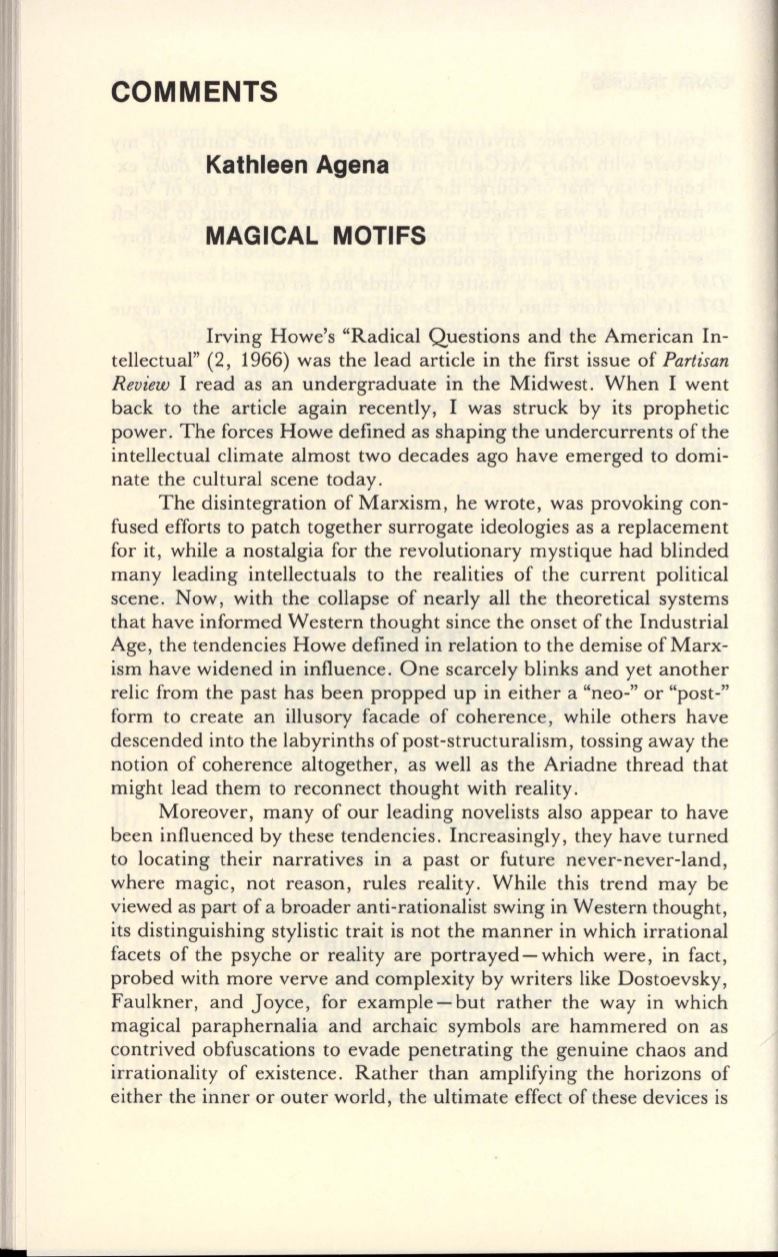
COMMENTS
Kathleen Agena
MAGICAL MOTIFS
Irving Howe's "Radical Questions and the American In–
tellectual" (2, 1966) was the lead article in the first issue of
Partisan
Review
I read as an undergraduate in the Midwest. When I went
back to the article again recently, I was struck by its prophetic
power. The forces Howe defined as shaping the undercurrents of the
intellectual climate almost two decades ago have emerged to domi–
nate the cultural scene today.
The disintegration of Marxism, he wrote, was provoking con–
fused efforts to patch together surrogate ideologies as a replacement
for it, while a nostalgia for the revolutionary mystique had blinded
many leading intellectuals to the realities of the current political
scene. Now, with the collapse of nearly all the theoretical systems
that have informed Western thought since the onset of the Industrial
Age, the tendencies Howe defined in relation to the demise of Marx–
ism have widened in influence. One scarcely blinks and yet another
relic from the past has been propped up in either a "neo-" or "post-"
form to create an illusory facade of coherence, while others have
descended into the labyrinths of post-structuralism, tossing away the
notion of coherence altogether, as well as the Ariadne thread that
might lead them to reconnect thought with reality.
Moreover, many of our leading novelists also appear to have
been influenced by these tendencies. Increasingly, they have turned
to locating their narratives in a past or future never-never-land,
where magic, not reason, rules reality. While this trend may be
viewed as part of a broader anti-rationalist swing in Western thought,
its distinguishing stylistic trait is not the manner in which irrational
facets of the psyche or reality are portrayed- which were, in fact,
probed with more verve and complexity by writers like Dostoevsky,
Faulkner, and Joyce, for example-but rather the way in which
magical paraphernalia and archaic symbols are hammered on as
contrived obfuscations to evade penetrating the genuine chaos and
irrationality of existence. Rather than amplifying the horizons of
either the inner or outer world, the ultimate effect of these devices is


